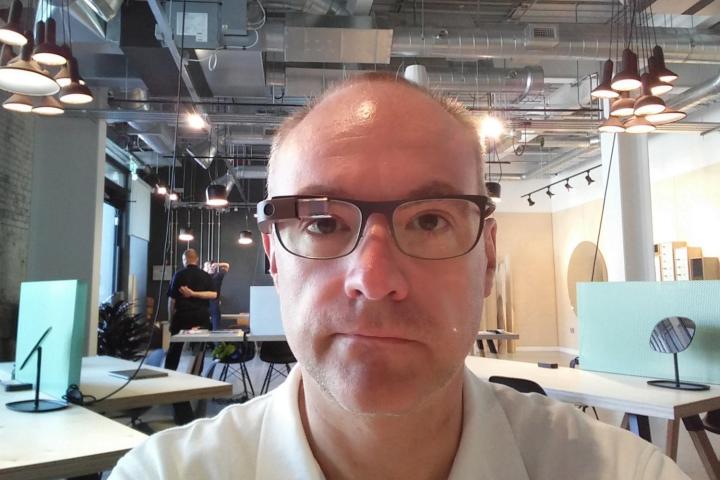
Glass suddenly feels like a very expensive Kickstarter project. It always sounds awesome at first, and some charismatic people do a fabulous job of selling the concept to you. You slap down some money, and eventually get a half-baked product that’s quickly abandoned by its makers. That’s the risk you take with crowd-funding, and for “investing” in companies called Bob’s Bright Tech Ideaz. However, it’s not what anyone expects from multi-national, multi-billion-dollar firms like Google.
Let’s be clear. It’s not that Glass is being retired that’s the problem here — it was going to happen eventually, after all — it’s the odd handling of this fateful announcement. I’m left feeling it was all a big waste of time, effort, and money.
Not everyone feels this way
Google ended the Explorer program with a post on Google+. No emails to Explorers, nothing. Those who were at the heart of this highly unusual tech program got the news at the same time, and in the same way as the rest of the world. Glass may be graduating, Google, but it feels like the Explorers are all being held back a year because we’re a bit dim.
Glass suddenly feels like a very expensive Kickstarter project.
Checking the comments on the post reveals a lot of positivity surrounding Google’s decision. “Yay!” many say, with only a few chiming in with, “Hold on, where does this leave us?” One wonders how many of those rejoicing actually purchased Glass. “Don’t forget about us,” cries one person. Sorry to say, but it seems this has already happened.
Yes, Glass has had its problems, both technically and socially, and Google has had to listen to them all. But to not say anything, not even an addendum, to set Glass owners’ minds at rest that they’ll be looked after, and the tangled piece of metal on their faces isn’t about to get stuck in update hell, is a most unfortunate decision.
It’s all very well “graduating” (just say it, Google, you mean discontinuing) Glass, but there is a tight-knit community wondering where the hell they stand because of it. Products get discontinued all the time, but Glass is very different to a device which sold to faceless millions. Why keep quiet?
Is this the end?
No, it’s not the end for Glass, just the Explorer program. This is perhaps the frustrating thing. Glass, it seems, is going on to bigger and better things. You’d think Google would want its dedicated followers to remain onboard.
Like James Bond, Glass will return, and the next version could be the one everyone will want to buy. Spectacle mega-corp Luxxotica is onboard, and Nest’s Tony Fadell will be taking care of the business side. It’s moving out of the geeky dream factory that is Google X Labs, and into the unforgiving world of consumer tech. Glass, as Explorers know it, has gone forever. So, it seems, has Google’s need for Explorers.
Unless, that is, you’re using it for business. Glass will still be on sale to those in the enterprise world, where we’re told it’s doing well, handling heart-stopping things like scanning barcodes and displaying inventories. Videos of operations make good headline fodder, but for those of us not considering some DIY surgery in the near future, they aren’t exactly relevant.
Google needs to remember where Glass began
To erase the bitter aftertaste of the Explorer program, Google needs to make sure it honors those who have not only purchased Glass for an exorbitant amount, but also worn the things in public. I’ve only had mine a short time, but they have been on a lot of different faces. It’s part of the joy, actually; letting people see what the fuss is (or was) all about. Explorers are Glass ambassadors, and without them, Google wouldn’t have so much raw data with which to mold the sequel in a way that’s more socially acceptable.
Early access to the next version of Glass would, of course, be reward enough. Who better to test it out than those who tested out the original? It would be even more welcome if it doesn’t come with a price tag more suitably attached to some used cars. Not letting the original stagnate by providing software updates, and even reinstating lost features like video calls, could also alleviate some of the pain. Right now, I’d settle for some actual communication.
Yes, Glass is an experiment, a tantalizing vision of the wearable future. Experiments don’t always work. I accept that, but Glass and its Explorers deserve more from Google than this bizarrely vague obituary. It’s an ignominious ending to what was a positive, exciting, and above all, fun project. Real, everyday people were involved in this, Google, not just employees; so why does it feel we’ve all been made redundant?
Editors' Recommendations
- I just spent $100 on Google Photos for a ridiculous reason
- I took these pictures with the Google Pixel 8, but you won’t believe me
- Forget waiting for Google I/O — the Pixel Fold just had a huge leak
- Google wants you to know Android apps aren’t just for phones anymore
- The Google Meet and Duo transition is going just as poorly as you’d expect





